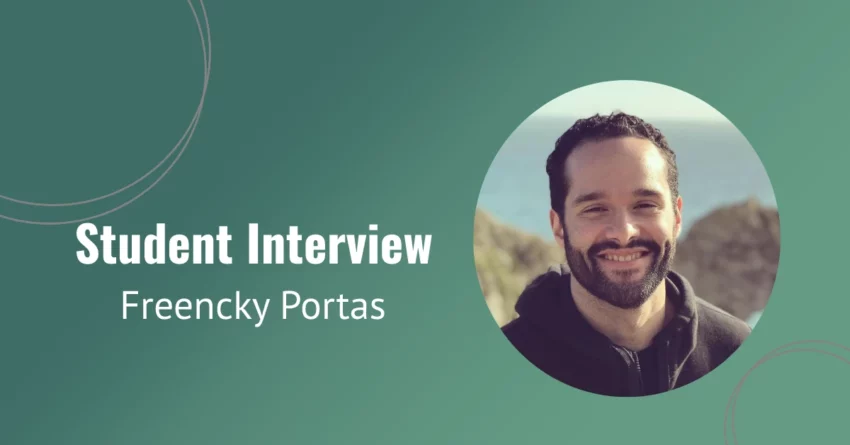Going Back To University To Pursue A Change In Career
Lendwise Borrower interview with Freencky P Portas.
Freencky P Portas took out a postgraduate loan with Lendwise in 2018 to fund his Masters in Publishing at University College London, which he completed in 2019.
In this interview, Freencky talks to us about why he chose a career in publishing, the difficulty in going back to university after working full-time and the stress of being turned down for a Master’s loan after he had started his course.
Why did you decide to apply for a Masters?
I finished my undergraduate degree in Business Entrepreneurship and Innovation in 2016 and although I always knew I wanted to go on to study for a Masters, I didn’t know what I wanted to do at that point.
I therefore decided to take a couple of years away from education and got a full-time job working in a hotel. During that time, I started doing my research and thinking more about what I wanted to study and eventually decided on a Master’s in publishing at University College London (UCL).
How difficult was it going back to study at University after two years of full-time employment?
It was a really tough decision to make after two years of working full-time. You get used to earning a certain amount of money and then you have to go back to university and work part-time again, it is hard to readjust. You worry about how you’re going to maintain the lifestyle that you’ve been accustomed to, particularly living in an expensive city like London.
As you get older you also think more carefully about taking on debt, but I knew that a Master’s degree was the next step towards the career I wanted.
How did you decide on publishing and UCL?
I’ve always been very passionate about books so this led me to think about a career in publishing. There were not a lot of courses to choose from in this area and it eventually came down to a decision between UCL, Oxford Brookes and one other university.
The course description at UCL stressed that they help students set up internships and work placements through the strong industry connections that they have. My undergraduate degree wasn’t very practical, so I wanted to choose a course that was more hands-on and provided connections to the industry and potential job opportunities.
On top of that, there was also the convenience of already being based in London and not having to worry about relocating and finding new accommodation, and a new part-time job.
What was the best thing about the course?
My course was only a year long but after six or seven months the university had helped me to get an internship with a publishing company in London. The course taught me about the industry and how it works but also gave me insight into what employers are looking for when hiring. The professors helped me to understand how to market myself and how to approach a job application or interview. This effort paid off, and I secured a full-time position with the company within two months of my placement. I am still with the company.
How easy was it to get the funding you needed?
I found out I was not eligible for a government Master’s loan. After already starting my course at that point and only had a few weeks before I was due to make my first payment. The decision was tough and I didn’t have any idea how I was going to do that.
I started by applying for a bank loan but going through the drawn-out application process I realised it wasn’t the right option. I would have had to start repaying the loan straight away and the interest rate was fairly high.
Instead, I decided to start searching for specialist education lenders and that’s when I found Lendwise. There were a few other providers out there but Lendwise had the best reviews from other borrowers and offered the greatest flexibility. All in all, the process was quicker than expected – which enabled me to pay the fees in time.
Representative Example: Assumed borrowing of £30,825 over 120 months at 12.73% APR representative. Monthly cost of £509.26. Total amount repayable of £61,199.65. Interest rate of 11.62% p.a.(fixed) and total fees of £925.00. Available for loan amounts between £5,000 – £100,000.
(Representative Example date: October 2024)
What advice would you give to anyone thinking of studying for a postgraduate degree?
The most important thing to do is research. You need to have a clear idea of what you want to study and why. A lot of people choose an undergraduate degree without a clear career plan in place because they are young and don’t have the professional experience or insight to make an informed decision.
The two years I spent working after my undergraduate degree gave me the time to think about what I wanted to do with my life and what industry I wanted to be a part of. Anyone who is struggling at that point should try and pinpoint what it is that they are passionate about and build from there.
Where do you see your career going in the next five years?
I’m currently a production assistant but I’m working closely with my manager on a development plan to get me moving up. I hope in the next 12 months that I’ll be in a managerial position and the next five years I would like to be a senior manager or director working within the production section of publishing.
